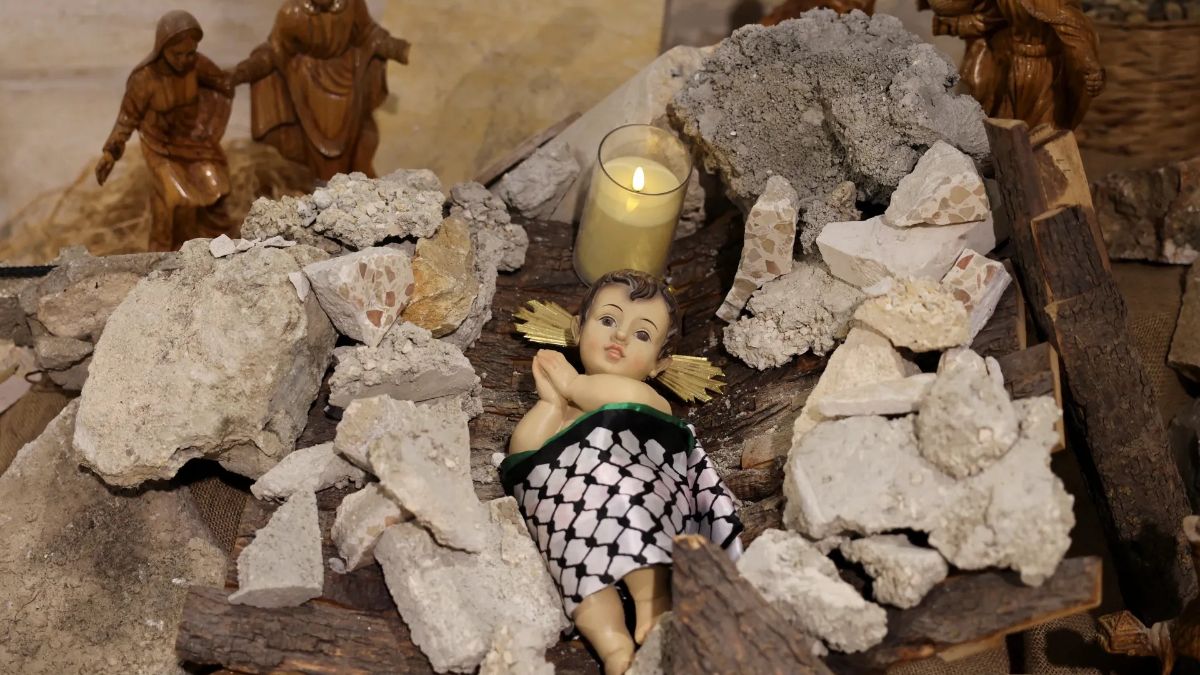Alexamenos Worships a Donkey
"If any want to become my followers, let them deny themselves and take up their cross and follow me."
Mark 8:31-38
February 23, 2018, Words By: Kris Rocke, Image By: “Alexamenos worships his god.”
It’s the second week of Lent and here we find Jesus teaching his disciples that, “The Son of Man must undergo great suffering and be rejected by the elders, the chief priests, and scribes and be killed, and after three days rise again” (8:31).
Peter is scandalized. He rebukes the heretic who dares say such things.
Keep in mind, after all, that Jesus is speaking to members of a slave state; they have suffered terribly under the Roman Empire. Tyrannical overlords like King Herod have terrorized the Jewish community with unspeakable violence for generations. And now, just when it looks like Jesus is capable of leading a revolution that could change things, he invites the disciples to pick up their cross and follow him.
No! No! No!
Peter sees Jesus as something of a sellout—a source of shame that discredits the movement. And perhaps…just maybe, Peter’s perception taps into his own sense of shame. He’d rather die fighting than live with that shame. And so, he pulls Jesus aside sternly, telling him to change his ways and save face.
Then, in the heat of the moment, Jesus does something most curious.
He turns from Peter and faces his disciples (as if to give Peter a little breathing room—a hint of grace for the difficult words that follow). While looking at his disciples, he rebukes Peter and says, “Get behind me, Satan.”
It’s seriously strong language, even when delivered gracefully. It’s clear that Jesus is not casting out Peter. He’s casting out the spirit of rivalry between them (which is Satan). And while it’s not stated directly, it also seems obvious to me that Jesus is casting out the shame in Peter that fuels the rivalry. It won’t be the last time Peter’s shame needs healing.
Speaking of shame…
One of the earliest known visual depictions of Jesus is the Alexamenos Graffito (around. 200 AD). It’s an early parody of Christianity showing a man with the head of an ass being crucified, and a youth raising his hand, as if worshipping. The Greek text in the graffito is: ALEXAMENOS SEBETE THEON or “Alexamenos worships his god.”
This demeaning wall carving is like the graffiti we might find in a public restroom today, and it’s not without humor. I imagine that Jesus gets a bit of chuckle out of the image. While it lampoons those who worship a God who would be crucified, it also shows profound insight.
“For the joy set before him, Jesus endured the cross, disregarding its shame.” (Hebrews 12:2)
Yes, Jesus occupies the shame of humanity and transforms it. Imagine the thing that most haunts you becoming the very source of your power, something more precious than gold. This is exactly what happens with Peter, who eventually picks up his cross and follows Jesus. It becomes his central message. In fact, it is said that when martyred, Peter insisted on being crucified upside down out of joyful reverence for Jesus and the way of cross.
But there are those troubling lines in verse 38. Jesus seems to be saying that when he returns from the dead after having been shamed publicly on the cross he will shame those who have shamed him.
Is this true?
Here’s what I know about shame. It is a dangerous thing, demanding violence and an endless supply of scapegoats. Shame claims for itself a divine status. When it burns hot and out of control, it takes on godlike features, AS THOUGH it were the very wrath of God. This is why Jesus is so eager to free Peter from shame. Unhealed, it alters our perception of God, turning the divine into a terrorist that haunts us.
What’s stunning about the resurrection narratives is that there is not a hint of vengeance or shaming anywhere. Zip. Zero. Nothing! Jesus occupies our shame gracefully until we can do the same. He picks up the cross that we are not ready to bear and shamelessly occupies our shame so that the shaming will stop.
Come Lord Jesus and show us the way of the cross!



